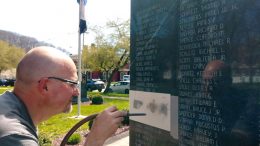Was there any good news in 1968?
It probably didn’t seem like it at the time. Martin Luther King was assassinated. So, too, was Robert Kennedy. The North Vietnam launched the Tet Offensive.
Plenty of bad stuff was going on, for sure.
Then, fortunately, there was this.
Fifty years ago, in 1968, the National Wild and Scenic Rivers Act was signed into law. It is meant to “preserve selected rivers with outstanding natural, cultural, and recreational values in a free-flowing condition for the enjoyment of present and future generations.”
The act doesn’t, in and of itself, protect a lot. It accounts for only 12,734 miles of water nationwide – or about 0.35 percent of all rivers across America.
But it spawned an appreciation for rivers that’s really taken off in the last two decades or so.
The nation’s water trails are evidence of that.
Water trails – much like hiking trails – are designated paths where boaters, paddlers primarily if not exclusively, can see historical sites, wildlife and waterfalls, find good fishing and solitude and generally explore.
They continue to expand, too. Pennsylvania is now home to 25 water trails, for example. West Virginia has nearly 20, Ohio 10 more, Maryland its own grouping. Trails exist in just about every state, in fact.
There’s even a National Water Trails System, coordinated by the National Park Service but with each trail otherwise managed on a local level.
All of the trails are great places for paddlers. That’s especially true for beginners.
Maps are the reason.
Most water trail comes with a map and accompanying guide. More often than not, they’re free.
They offer lots of details.
Access points: Virtually all water trail maps tell you where to get on and off the water. Sometimes launches are identified as being either primitive in nature, suitable for canoes, kayaks and other car-top boats, or more developed, meaning suitable for power boats. Often, GPS coordinates are included.
River mileage: This tells you how far apart one launch is from another, for example. That’s good to know when planning day or even overnight trips.
Rapids: Most maps show the location of rapids. Often, they list how intense they are – rapids are rated from Class I to Class VI, with the former the easiest, the latter the most challenging – and give suggestions on how to run them.
Hazards: No map can account for every hazard. Strainers, for example, can pop up at any time. But if there’s a lowhead dam on a river, or other permanent obstacle, maps show them.
Camping locations: River trail maps often identify individual campgrounds. At the least, the identify land ownership. That tells paddlers where primitive camping in national and state forests might be permissible.
Points of interest: If there’s a historical site to be seen along a particular river, maps show them. The same is true with unique geological features.
Outfitters: Like with campgrounds, many river maps identify outfitters who can either rent you a canoe or kayak or shuttle your own boats around.
A number of special events – with the list growing all the time – are planned for this year, to mark the Act’s 50th anniversary.
Of course, not everything worth doing or seeing along a river is mapped, or even organized, scheduled or catalogued. That’s where the fun of getting outside and exploring for yourself comes in.
So who’s ready to hit the water?
Bob Frye is the Everybody Adventures editor. Reach him at (412) 216-0193 or bfrye@535mediallc.com. See other stories, blogs, videos and more at everybodyadventures.com.
To Learn More
The 50th anniversary of the National Wild and Scenic Rivers Act will be a year-long celebration. A number of special activities are planned, with more being added to the calendar all the time.
To see what’s happening where and when, visit www.rivers.gov.
For information on the National Water Trails System, visit www.nps.gov.











































